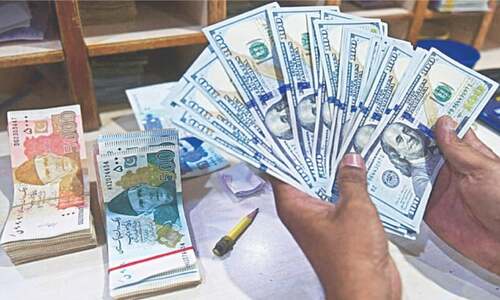LAHORE, Feb 3: The government would refund research and development (R&D) claims to knitwear and woven garment exporters next week, and also restore three per cent interest subsidy on loans for the spinning industry at the earliest.
Prime Minister’s Adviser on Finance Shaukat Tarin gave these assurances at a meeting with textile producers and exporters at the Governor’s House on Tuesday. State Bank of Pakistan Governor Salim Raza, Textile Minister Rana Farooq and Punjab Governor Salman Taseer were also present.
Both the facilities were discontinued to knitwear and woven garment exporters and spinners at the end of last financial year as government faced a severe cash flow crunch.
Garments exporters say they had to face a lot of difficulty due to nonpayment of their R&D claims filed in the last week of June.
But participants of the meeting said, Mr Tarin refused to give any kind of cash subsidies or incentives to the industry because of shrinking fiscal space.
“We don’t have money and our revenues are sliding due to problems inherited by the government,” the advisor was quoted to have told businessmen.
When contacted, Mr Tarin told Dawn that he did not give any new “incentive” to the industry.
“We have only tried to resolve problems and issues constraining textile exports from the country,” he said.
All-Pakistan Textile Association (APTA) Chairman Adil Mahmood told Dawn after the meting that the advisor also agreed to extend export re-finance (ERF) facility to spinners and weavers.
In addition, he said, Mr Tarin promised to look into several other demands made by spinners at a later stage. “Many of our issues have been settled,” he said.
The spinners had also demanded that the ERF facility should also be extended to indirect exporters of yarn and fabric to avoid any shortages in the domestic market. Besides, Mr Mahmood said, “we want the government to restructure the short-term loans used by millers to import machinery as long-term debt. But the SBP governor did not appear inclined to accepting it.”
Pakistan Knitwear and Sweaters Exporters Association (PAKSEA) chairman Shahzad Azam Khan, who acknowledged textile minister’s efforts for bridging the gap between the government and the business community, said the advisor promised to look into the possibility of imposing regulatory duty on imported garments to protect local manufacturers.
All-Pakistan Textile Mills Association (Aptma) Chairman Tariq Mahmood said most of the demands made by spinners had been shot down by the advisor because the government did not have money to spare.
But, he said, the advisor agreed to resolve several issues facing the industry and to consider other demands when the fiscal situation improved.
Parvaiz Ishfaq Rana adds from Karachi: The government has also decided to increase export realisation period from 180 to 270 days, according to another decision made at the meeting held between the Prime Minister’s Advisor on Finance and Economic Affairs Shaukat Tarin and representatives of apparel sector.
Federal Minister for Textile Industry Rana Farooq Saeed presided over the meeting.
The apparel leaders apprised the advisor about problems confronting textile industry at large and apparel sector in particular in the light of current slowdown in global economy.
It was decided by the advisor on finance Shaukat Tarin to ease liquidity crunch of textile exporters so that they could meet their export commitments.
Pakistan Hosiery Manufacturers Association (PHMA) chairman Jawad Bilwani talking to Dawn on telephone from Lahore said as a first step it has been decided by the advisor on finance to release outstanding funds against R/D for the period up to June 30, 2008.
He informed that it was also decided that after making textile exports zero-rated from sales tax in the year 2005 there was some outstanding amount towards such payments against accessories and packing material.
As a result of Tuesday’s meeting, he said, Shaukat Tarin decided to make such payments of one per cent sales tax against accessories and packing material within a period of one month.
The advisor also decided to make future payments towards one per cent sales tax against accessories and packing material at the time of realization of export proceeds.
The advisor said these measures would hopefully improve liquidity crunch of exporters who are presently faced with multiple issues domestically and globally owing to economic slowdown and recession.
It was also decided that to make exports zero-rated in real sense, both the private sector and government officials would work together and come up with consensus document for the implementation.
Similarly, Mr Bilwani said that the advisor sought some time to decide about R/D for apparel sector up to June 30, 2009.













































Dear visitor, the comments section is undergoing an overhaul and will return soon.